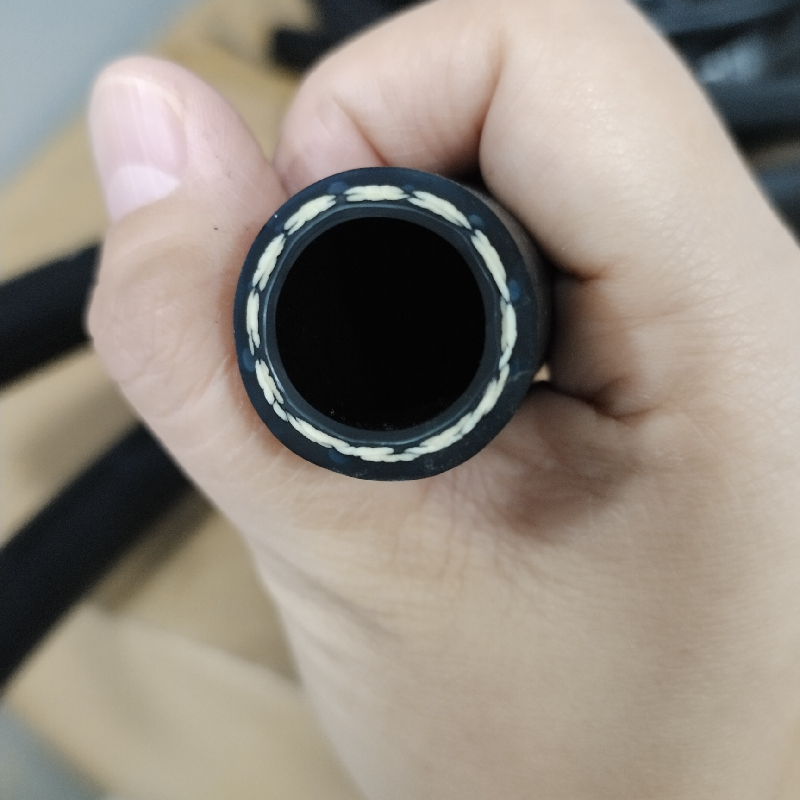Choosing the Right Fuel Hose for Your Fuel Injection System Needs
12월 . 26, 2024 08:36 Back to list
Choosing the Right Fuel Hose for Your Fuel Injection System Needs
Understanding Fuel Hoses for Fuel Injection Systems
Fuel injection systems play a crucial role in modern vehicles, ensuring optimal performance and efficiency. One of the fundamental components of these systems is the fuel hose. While often overlooked, the fuel hose is vital for transferring fuel from the tank to the engine, maintaining pressure, and ensuring the overall safety and functionality of the injection system. This article will explore the essentials of fuel hoses used in fuel injection systems, their types, materials, and the importance of regular maintenance.
What Are Fuel Hoses?
Fuel hoses are specialized tubes designed to transport fuel from one location to another within a vehicle. In fuel injection systems, they carry fuel at high pressure from the fuel tank to the fuel injector. The hoses are engineered to handle various fuel types, including gasoline and diesel, while resisting deterioration from heat, pressure, and chemical exposure.
Types of Fuel Hoses
There are several types of fuel hoses used in fuel injection systems, each serving a specific purpose. The most common include
1. Low-Pressure Fuel Hoses Typically used in carbureted systems or for transferring fuel from the tank to the fuel pump, these hoses operate under lower pressure compared to their high-pressure counterparts.
2. High-Pressure Fuel Hoses Essential for fuel injection systems, these hoses are designed to withstand the high pressure generated by the fuel pump, which can exceed 60 psi. They ensure that fuel reaches the injector at the necessary pressure for efficient combustion.
3. Fuel Return Hoses In many systems, excess fuel is returned to the tank. Return hoses are designed to handle this secondary flow and are usually of lower pressure than the primary delivery hoses.
4. Ethanol-Compatible Hoses With many consumers turning to biofuels and ethanol-blended fuels, hoses compatible with these fuels have become increasingly important. These hoses are designed to resist the corrosive effects of ethanol, which can deteriorate standard hoses.
Materials Used in Fuel Hoses
fuel hose for fuel injection

The choice of material for fuel hoses is critical for performance and longevity. Common materials include
- Rubber Traditional hoses made from synthetic or natural rubber provide flexibility and resistance to typical wear. However, they may not always stand up to higher pressures or the corrosive effects of certain fuels. - Reinforced Nylon This material is favored in high-performance applications due to its strength and resistance to high temperatures and pressure. Nylon hoses often have a rubber outer layer for added protection.
- PTFE (Teflon) Known for its chemical resistance, PTFE hoses are often used in specialized applications where flow integrity is crucial, such as in racing or high-performance engines.
Importance of Regular Maintenance
Maintaining the integrity of fuel hoses is critical for the efficiency and safety of a vehicle. Over time, hoses can become cracked, hard, or brittle due to exposure to heat and fuel. Regular inspections are essential to detect signs of wear or damage. Here are a few maintenance tips
1. Routine Inspections Check hoses for any signs of leaks, bulges, or other deformities. Any visual deterioration should prompt a replacement. 2. Replace as Necessary Fuel hoses are not designed to last indefinitely. It's prudent to replace them every few years, depending on the vehicle's usage and environment.
3. Use Quality Replacements When replacing hoses, always opt for high-quality parts that conform to industry standards to ensure safety and performance.
4. Monitor Fuel Performance Changes in engine performance, such as sputtering or failure to start, can indicate hose issues. Swiftly addressing these symptoms can prevent larger problems down the line.
Conclusion
Fuel hoses are a vital part of any fuel injection system, essential for efficient fuel delivery and engine performance. Understanding their role, types, materials, and maintenance needs can help vehicle owners ensure their cars operate safely and efficiently. By being proactive about fuel systems and conducting regular inspections, car enthusiasts and everyday drivers alike can enhance the longevity and performance of their vehicles. The importance of choosing the right hoses and maintaining them cannot be overstated; after all, a small component can often make a significant difference in the overall health of an engine.
Latest news
-
Durable Automotive Fuel Line: Car, Diesel & E85 Hoses
NewsAug.27,2025
-
Automotive Fuel Line & Hose Solutions | E85 & Diesel Ready
NewsAug.26,2025
-
Reliable Automotive Fuel Line | E85 & Diesel Compatible
NewsAug.25,2025
-
Durable Car Heater Hose | Quality Automotive Preheater Pipes
NewsAug.24,2025
-
Durable Air Brake Hose & Air Lines for Trucks | Safety Ensured
NewsAug.23,2025
-
Air Conditioning Charging Hose: Durable AC Recharge Kits
NewsAug.22,2025
